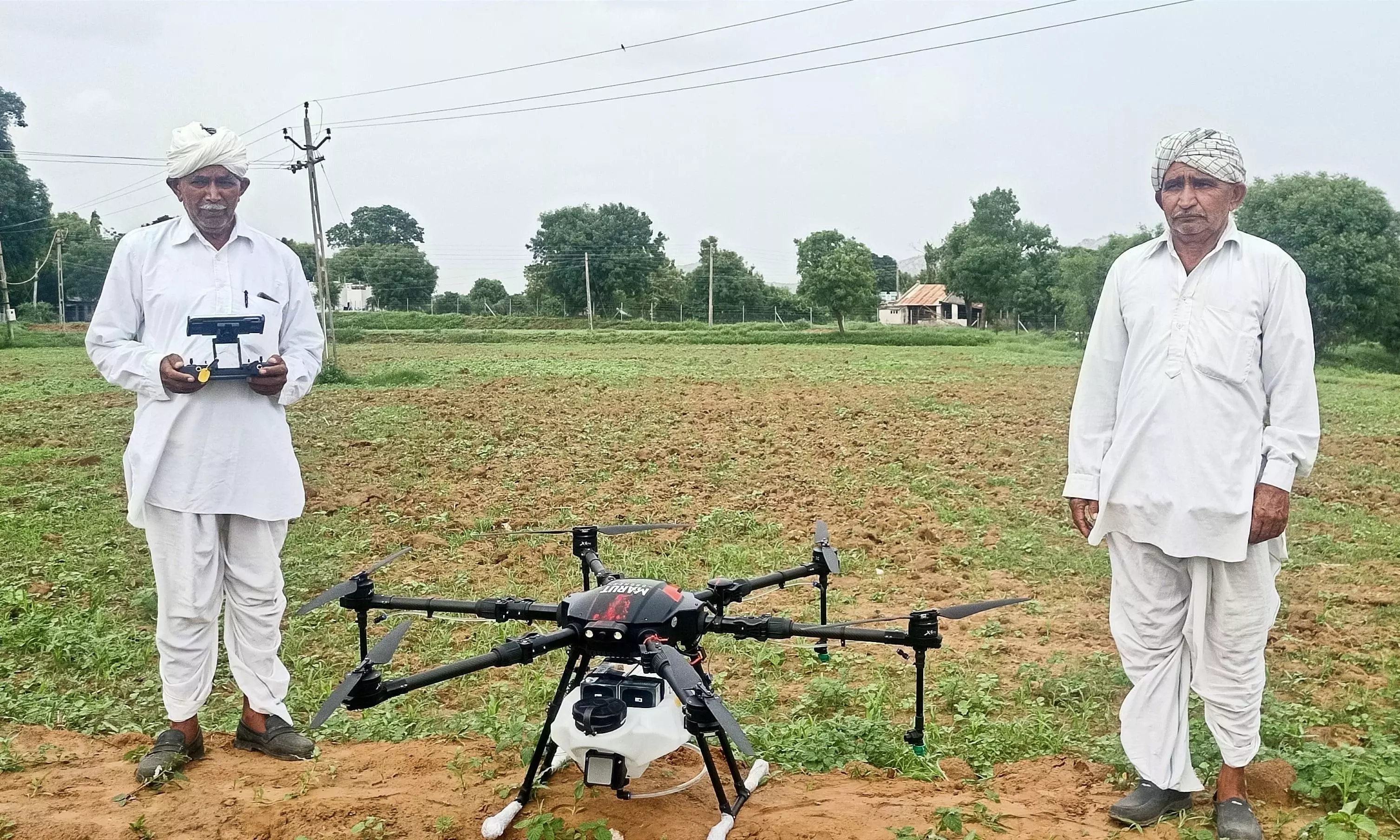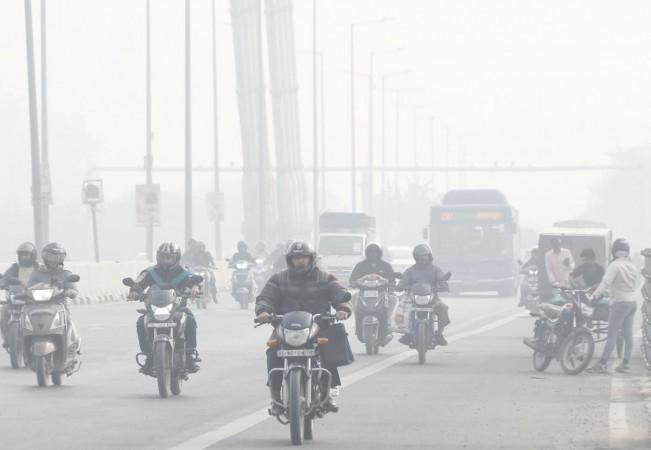
In the fertile fields of Telangana and Andhra Pradesh, a quiet technological revolution is transforming agricultural practices. Farmers like Muralidhar Kasala from Daulatabad, Sangareddy have turned to drone technology to overcome challenges like labour shortages, uneven fertilisation and health risks. “I pay Rs 400 per acre for drone services.
Earlier, hiring six labourers per acre used to cost Rs 800 daily, and manual spraying often caused respiratory problems. Now, drones have saved me time, money, and health,” he says. The benefits are resonating widely, including in Nalgonda’s Peddavoora mandal.

Vamshi Veeriah, a farmer from Gannekunta village, shares how drones have become indispensable on his farm. “Earlier, pest infestations and uneven spraying would lead to crop loss. I could only react after the damage was done.
Now, with drones, I can act early because the data tells me exactly where the problem lies. The precision is incredible. Every corner of the field is covered, unlike manual spraying where some areas are missed”, he explains, visibly delighted.
In Kadapa district, Siva Reddy Sunkesula finds the service model of drones particularly invaluable. “Owning a drone is not feasible for me but with this service, I only pay when I need it. Tasks like spraying, which used to take days and a lot of labour, are now done in hours.
I’ve seen my yield improve by at least 15 per cent, and it’s much less stressful,” he says. He also highlights the health benefits, saying, “With manual spraying, I would end up inhaling chemicals. Drones eliminate that risk entirely.
” These stories are part of a larger transformation driven by Hyderabad-based start-ups like Marut Drones, which is pioneering the ‘Drone as a service’ (DaaS) model. Farmers can access precision services such as pesticide spraying, fertiliser broadcasting and crop monitoring without having to purchase, get trained or maintain the equipment. “Our aim is to make drone technology accessible and affordable for all farmers, no matter the size of their fields,” says Prem Kumar Vislawath, CEO and co-founder of Marut Drones.
For farmers like Veeriah, the value lies in precision and efficiency. “The drone can do in two hours what used to take days with labourers. And it’s not just about speed—drones ensure accurate spraying, so there’s no wastage of fertilisers or pesticides,” he reasons, Siva Reddy adds that drones have improved his resource management.
“I now know exactly how much water or pesticide is needed and where thanks to the data provided by drones. This has helped reduce my costs significantly while increasing my output.” Companies like Marut Drones work with farmer-producer organisations (FPOs), Krishi Vigyan Kendras (KVKs) and agricultural universities to educate farmers on using drones effectively.
Government initiatives like the Kisan drone scheme, which provides financial subsidies for adopting drone technology, further reduce the entry barrier. “Our collaboration with local organisations ensures that farmers understand the long-term benefits of this technology,” says Vislawath, while adding, “It’s not just a tool—it’s a way to make farming sustainable and profitable.” Currently operating in 18 states, Marut Drones aims to extend its reach nationwide by 2025.
With over 200 drones already sold and 35 dealers on the ground, they plan to deploy 500 drones and establish 100 dealerships to support farmers more effectively. The company is also exploring applications beyond agriculture, including infrastructure inspections, firefighting, and drone deliveries. For farmers across the Telugu states, drones are more than just machines—they are a symbol of modernisation.
“Drones have completely changed how we farm. I can’t imagine going back to the old ways,” says Vamshi Veeriah..














